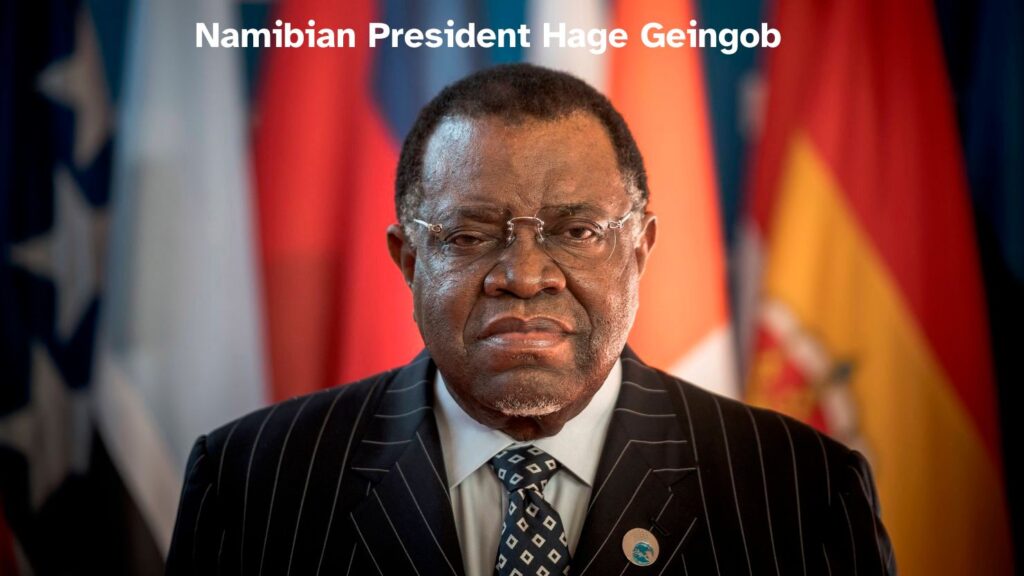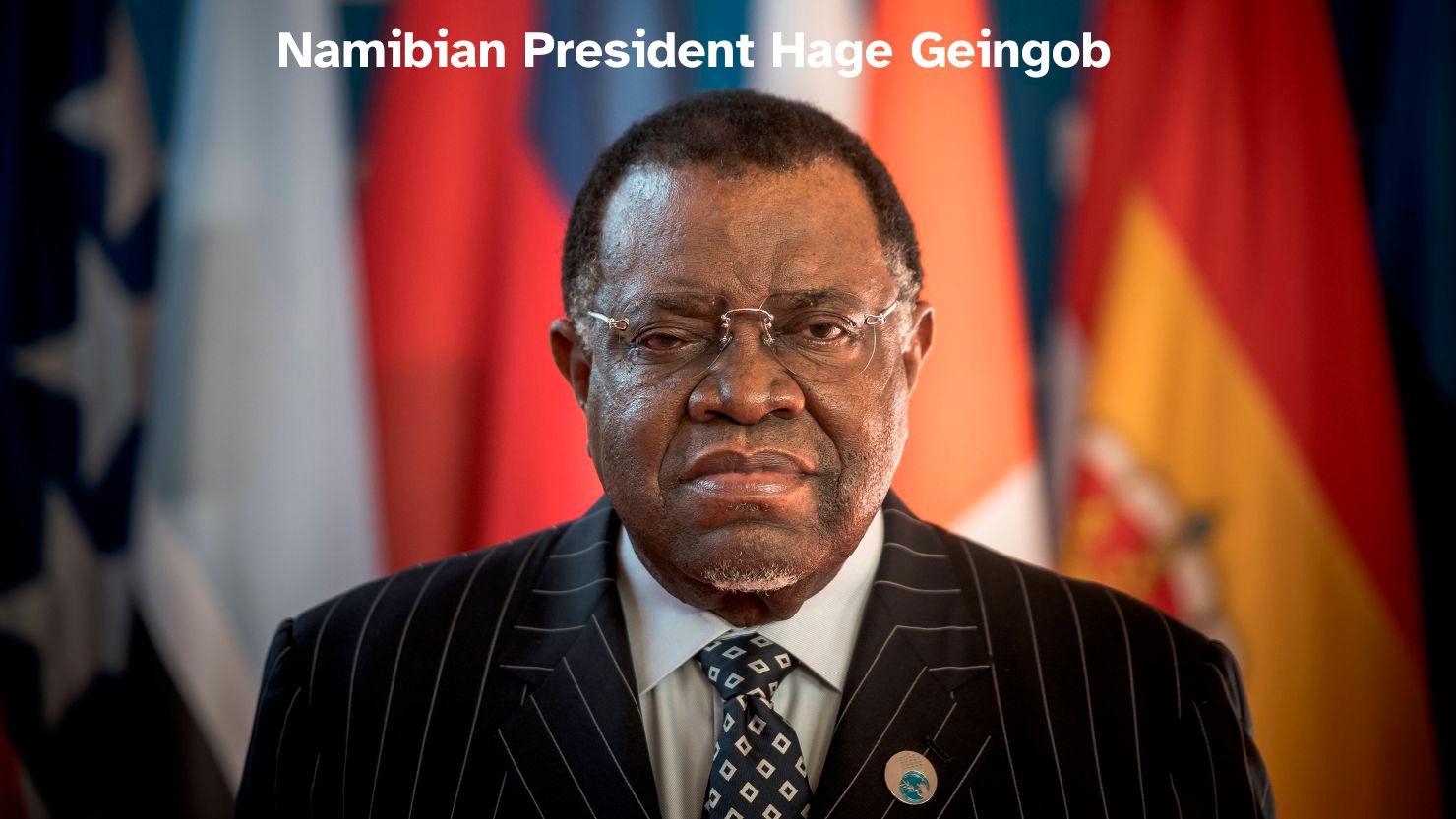ALBAWABA – Namibia’s presidential office announced the death of President Hage Geingob at the age of 82, AFP reported on Sunday.

. Geingob passed away in Lady Pohamba Hospital in Windhoek. Last month, the president revealed that he has cancer. CNN reported that Geingob died at around 12:04 a.m. ET on Sunday, at Lady Pohamba Hospital with his wife Monica Geingos and his children by his side, Mbumba’s statement read.
In detail, Namibia’s president, who was first elected in 2014, is the longest-serving prime minister and third president. Geingob underwent in 2013 brain surgery, and last year he did an aortic operation in neighboring South Africa.
. “The Namibian nation has lost a distinguished servant of the people, a liberation struggle icon, the chief architect of our constitution and the pillar of the Namibian house,” Mbumba said.
“At this moment of deepest sorrow, I appeal to the nation to remain calm and collected while the Government attends to all necessary state arrangements, preparations and other protocols. Further announcements in this regard will be made,” the acting President added.
. According to Al Jazeera, Geingob’s office announced last month that the African leader had begun treatment following the discovery of ‘cancerous cells’ during a routine colonoscopy and a gastroscopy. His office said a few days later he would be travelling to the United States for medical care and would return to Namibia in February.
1. About Hage Geingob: President of Namibia
Hage Geingob is a prominent political figure in Namibia, currently serving as the country’s third president. He has had a long and distinguished career in politics, playing a significant role in the liberation struggle and the subsequent nation-building efforts in Namibia. Geingob has been instrumental in shaping the political landscape of Namibia and has made significant contributions to the country’s development and international relations.
2. Early Life and Education
Hage Geingob was born on August 3, 1941, in Otjiwarongo, Southwest Africa (now Namibia). He received his early education at various mission schools before pursuing further studies abroad. Geingob attended Fordham University in the United States, where he earned a bachelor’s degree in economics. He later obtained a master’s degree and a doctorate in international relations from the School of International and Public Affairs at Columbia University.
3. Political Career
Geingob’s involvement in politics dates back to the early years of Namibia’s struggle for independence. He played a key role in the country’s liberation movement and held various leadership positions within the Southwest Africa People’s Organization (SWAPO), which spearheaded the fight against South African rule. Following Namibia’s independence in 1990, Geingob served in several ministerial roles, including Minister of Trade and Industry, Minister of Housing and Rural Development, and Prime Minister.
In 2015, Hage Geingob was elected as the third President of Namibia, succeeding Hifikepunye Pohamba. His presidency has been marked by efforts to address socio-economic challenges, promote good governance, and strengthen Namibia’s position on the global stage. Geingob has emphasized inclusive development and has been vocal about the need for economic empowerment and poverty reduction.
4. International Engagement
As president, Hage Geingob has been actively involved in international diplomacy and has represented Namibia on numerous global platforms. He has advocated for issues such as sustainable development, climate change mitigation, and African unity. Geingob has also been a proponent of regional integration within Africa and has sought to bolster Namibia’s partnerships with other nations.
5. Legacy and Impact
Throughout his career, Hage Geingob has left a lasting impact on Namibian politics and society. His commitment to democratic principles, social justice, and economic progress has resonated with many Namibians. Geingob’s leadership style is characterized by a focus on dialogue, consensus-building, and inclusivity.
Under his presidency, efforts have been made to address challenges such as unemployment, inequality, and land reform. Additionally, Geingob has emphasized the importance of transparency and accountability in governance.
Conclusion
Hage Geingob’s tenure as President of Namibia reflects his dedication to advancing the interests of his country and its people. His contributions to the liberation struggle, post-independence governance, and international diplomacy have positioned him as a respected leader both within Namibia and on the global stage.
